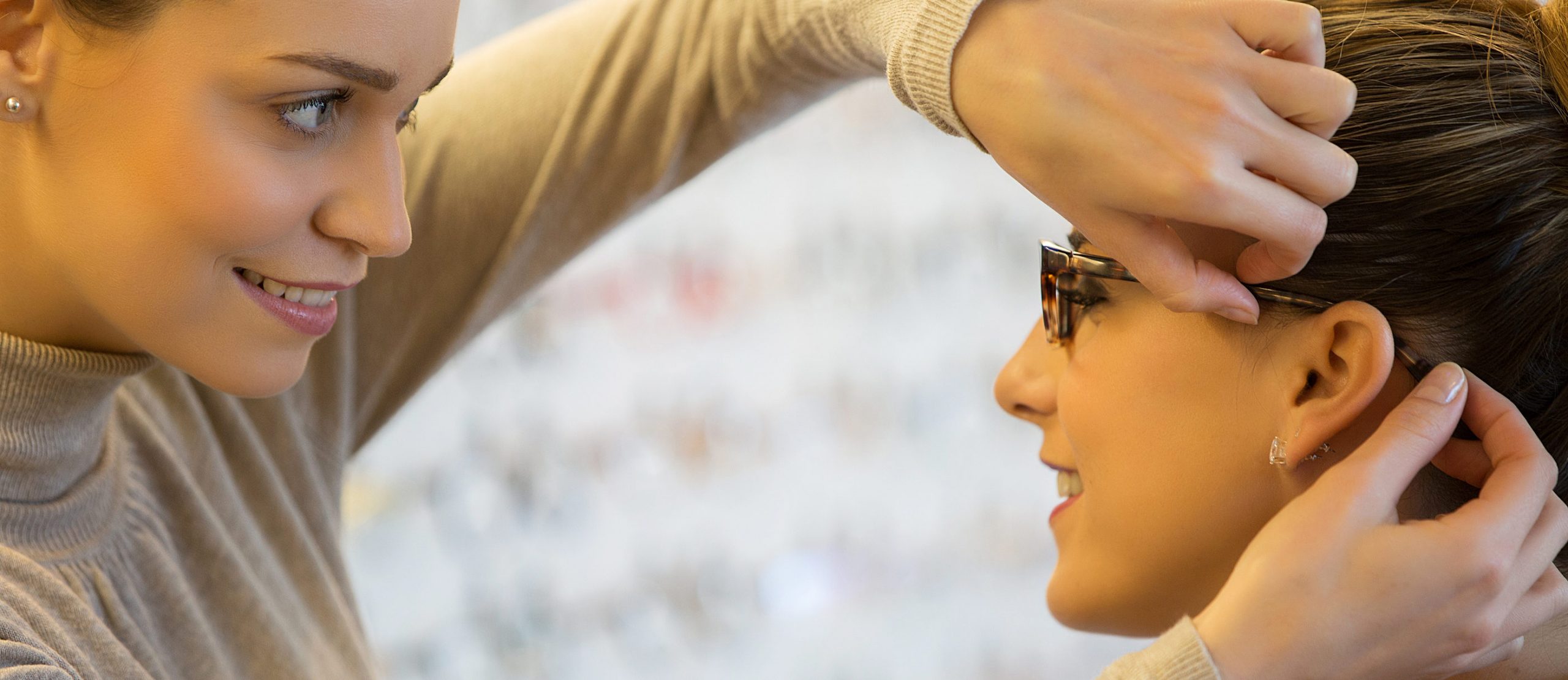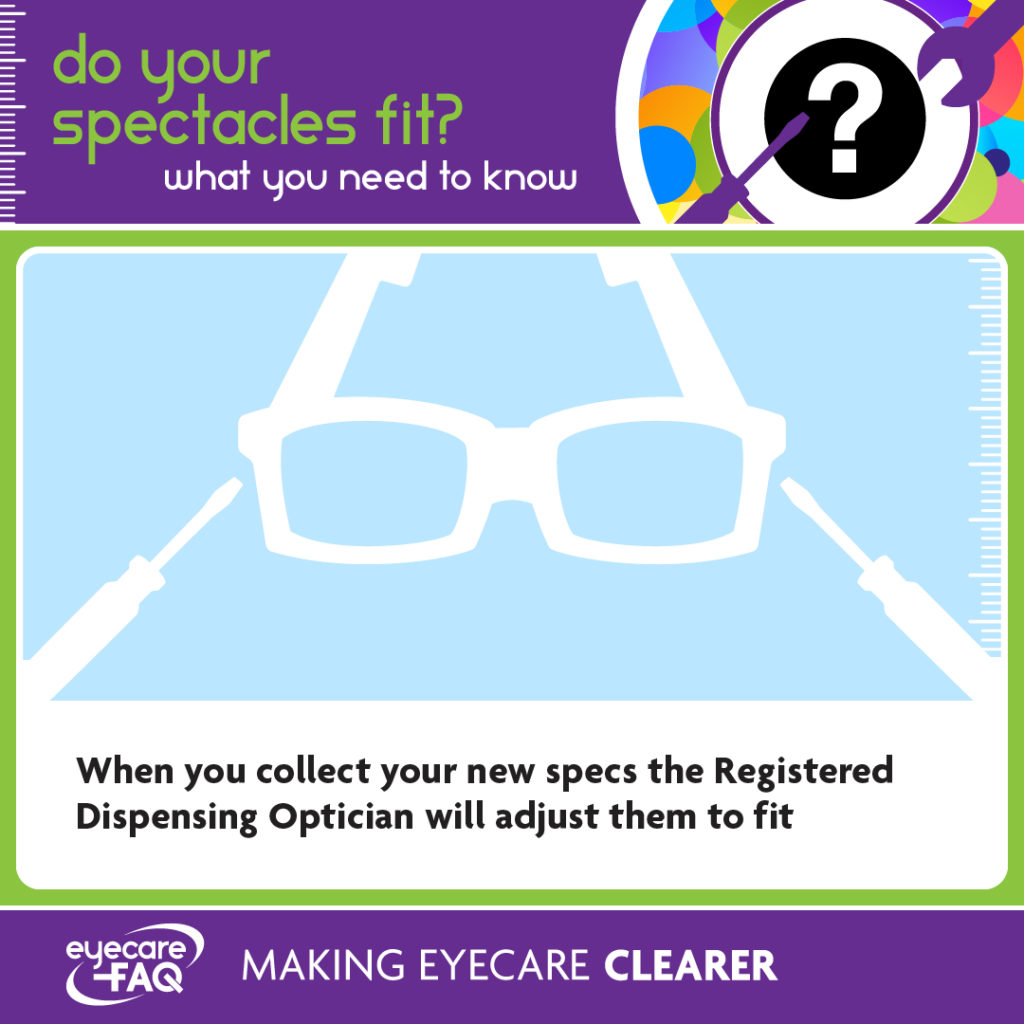
What is a dispensing optician?
What does a DO do?
What is the role of a dispensing optician?
- A dispensing optician is a registered healthcare professional and plays various roles within an optical practice to help patients.
- The core role of a dispensing optician (DO) is to advise on, fit and supply the most appropriate spectacle frames and lenses for each person. What works best for one person won’t be the same for another. The best glasses for you depend on what you want to look at, and the situations in which you are doing it. A keen golfer will have different visual needs to someone who loves to crochet, for example. A forklift truck driver would need different eyewear to someone who works in an office. The DO will talk to you about your day-to day life and help you select the best solution for you.
- Dispensing opticians advise on and dispense:
- Frames and lenses for driving, work, hobbies, and activities.
- Protective eyewear, such as prescription sunglasses, spectacles for screen use, and sports and safety eyewear.
- Spectacles for people who are visually impaired.
- Low vision aids, such as magnifiers, for people whose vision cannot be corrected by spectacles alone.
- Dispensing opticians (DOs) advise on and dispense spectacles for children – children’s faces have different proportions compared to adults so need frames that are designed specifically for kids, not scaled down versions of adult frames. A DO is also trained to communicate with both parents/carers and children.
- Dispensing opticians (DOs) are clinicians and part of a practice clinical team. DOs provide clinical advice and guidance on common eye conditions and identify and refer people which require emergency care. DOs work in community optical practices, provide care in the home and in other settings including hospitals.
- Dispensing opticians can advise children and their parents/carers about myopia management and the importance of addressing this as early as possible. They can dispense speciality lenses to control myopia progression and contact lens opticians can prescribe speciality myopia management contact lenses.
What skills do dispensing opticians have?
- Dispensing opticians (DOs) bring to their roles high-quality communication and problem-solving skills. A DO can help you if you have more complex needs for your eyewear. They can also help if you have a problem with your glasses.
- Dispensing opticians (DOs) can share their knowledge and skills with colleagues, improving the performance of the practice team overall and ensuring that you get receive high-quality care and advice when you visit the opticians.
- Dispensing opticians (DOs) are well-placed to give you clinical advice on common eye conditions and deliver monitoring services.
- Dispensing opticians (DOs) are a great first point of contact for parents/carers wishing to bring children or vulnerable adults for an eye examination.
Which roles can only dispensing opticians or optometrists do?
- Dispensing spectacles to children or visually impaired people can only be undertaken by, or carried out under supervision of, dispensing opticians or optometrists registered with the GOC.
- Dispensing contact lenses to children or visually impaired people can only be undertaken by, or carried out under supervision of, dispensing opticians after further training or optometrists registered with the GOC.
- Although optometrists may dispense and supervise the dispensing of spectacles to children and visually impaired people, they do not get the same level of education and training in this area as dispensing opticians. DOs specialise in this area.
- Dispensing opticians are educated to degree-level and with three years of education have the knowledge needed to assess your needs and the best glasses to help you.
How is the role of a dispensing optician developing?
- The role of a dispensing optician (DO) is developing in various ways, with DOs increasingly likely to be involved in:
- Advising parents and children on myopia management to prevent or slow the development of myopia, also known as short-sightedness.
- Refraction under supervision.
- Critical appraisal of optical-related literature to provide patients with the best advice.
- Advising and treating people with a range of common eye conditions such as dry eye.
- Clinical imaging and interpretation using specialist equipment
- Assessing people before they attend a practice.
- Nutritional and lifestyle issues relating to eyecare.
What further roles can a dispensing optician perform?
- Dispensing opticians will often carry out further roles within an optical practice as they gain experience. These include practice management, managing, training, and mentoring staff, supervising the dispensing of spectacles and handling complaints.
- Dispensing opticians use their professional skills and knowledge routinely, which leads to a reduced number of complaints and returns.
- Dispensing opticians can provide a specialist dispensing service to people who may be vulnerable, have additional needs, or require adaptations to optical appliances.
- Dispensing opticians can also fit, and provide aftercare for, contact lenses after undergoing specialist training and registering as a contact lens optician.
- Contact lens opticians are then able to access extended services courses to become accredited to deliver minor eye conditions services (MECS) in England, Glaucoma Repeat Measure IOP readings, and Covid urgent eyecare services (CUES).

